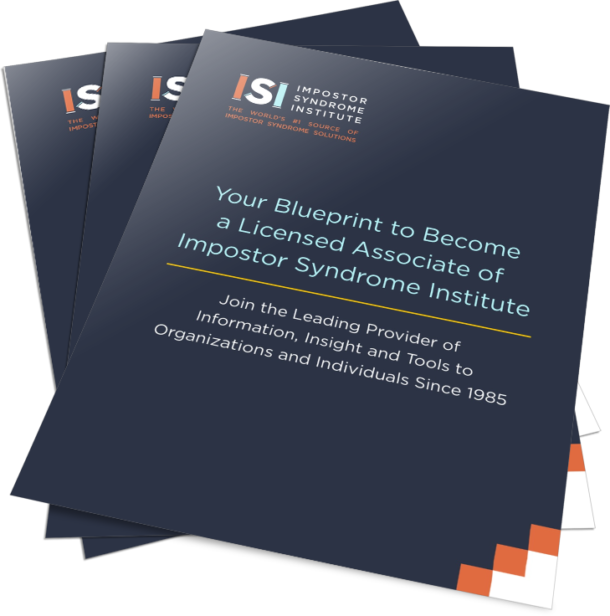
Who Do You Think You Are?
Big success can make you feel so small
Wednesday, March 30, 2005
By Leslie Goldman
All eyes were on Liz Ryan as she took the stage in New York to receive her “Stevie” award — the business equivalent of an Oscar.
But as she accepted, Ryan, founder and chief executive officer of WorldWIT, a women’s online discussion community, was filled with doubt.
“Bill Rancic (of “The Apprentice”) was handing me the award and I’m thinking, ‘Who the hell am I? I’m just a mom with an overflowing laundry room and a 2-year-old with applesauce in his hair,’” remembers Ryan.
This wasn’t the first time doubts had circulated through her mind.
Such thoughts go deeper than deprecation or fleeting lapses in self-confidence. It’s an issue some mental-health professionals call the Impostor Syndrome, and it affects many highly successful women.
The syndrome was identified in 1978 by psychology professor Pauline Clance and psychologist Suzanne Imes as a persistent belief in one’s lack of intelligence, skill or competence.
It’s a sense of intellectual fraudulence; the belief that one doesn’t deserve her academic or career achievement and simply has been able to fool others into believing in her abilities.
Arla Lisa McMillan, a psychotherapist, says she sees a steady flow of Impostor Syndrome clients.
It’s an exhausting way to live.
“Say you’re a successful banker, sitting with a client, and they’re asking you questions and you’re answering but you’re thinking, ‘There must be a better answer.’
“You’re second-guessing yourself, thinking any second you’re going to be discovered. You’re constantly on guard.”
Businesswomen, who are achieving more and more in spheres in which they previously didn’t exist, are prime candidates.
“That is a set up for feelings of inadequacy,” says McMillan.
Impostor Syndrome can be considered a clinical phenomenon but not a psychiatric diagnosis.
What determines whether treatment is needed is the degree, the intensity and whether it interferes with one’s ability to complete daily tasks, says psychiatrist Leslie Hartley Gise, clinical professor in the department of psychiatry at the University of Hawaii.
“Who among us hasn’t doubted ourselves at some point?” Gise says.
“All of these things in a mild form are part of normal human experience. But if somebody is staying three extra hours at work to prove they can make it, it would more likely be a disorder and something they would want to address.”
Arguably, Impostor Syndrome could be a new label for old-fashioned insecurity or a lack of self-confidence.
But some experts say the issue goes deeper.
Valerie Young, a teacher who holds a doctorate in education, says “impostors” come from all walks of life and all career levels: physicians, nurses, lawyers, educators, computer programmers and students.
The syndrome can be especially rampant in historically male-dominated fields, such as science and engineering, she says, or for first-generation professionals “who feel the weight of being the standard-bearer for their family or race in some cases.”
Young herself had felt like an impostor until she put a name to the face in 1983 during a graduate class.
“Somebody brought a paper into class and started describing this syndrome — bright, capable women who felt like they’d fooled others, managed to slip through the system undetected.
“I looked around the room and saw all the other women graduate students nodding their heads.”
She now teaches a workshop designed to help women feel as capable as their success would suggest they are.
For writer Jory Des Jardins, 32, the syndrome first manifested itself several years ago, when her articles were printed in major publications, including The New York Times. “When people got excited about my work, I’d think, ‘Oh, my God, I can’t believe you read that article. I can’t believe you thought it was good.’”
The syndrome later surfaced when Des Jardins was promoted at a media startup. “They were treating the job like it was brain surgery, and I felt I had not done anything significant to earn it,” she recalls.
Eventually, after a string of jobs left her feeling perpetually dissatisfied, she sought assistance from a career coach who asked if she had ever heard of Impostor Syndrome.
“I Googled it and realized there are a lot of people with it. No one who is senior vice president of banking would want to admit she doesn’t feel up to snuff.”
According to Young, three elements are at the core of the syndrome: a warped definition of competence; a complex view of success; and the way some women respond to failure.
As for the competence aspect, Young says, “Our internal bar is set way too high.”
The result: Anything short of a flawless performance leaves perfectionists feeling unsuccessful.
Consider Ryan, who started a software company in 1999, which Motorola recently bought for $25 million.
Even though she hasn’t been involved with the company for three years, she has been getting congratulatory calls about the purchase.
“My first thought is, ‘Yes, it’s great, but it took five years, it’s just a $25 million sale.’
“A friend said, ‘What do you mean just a $25 million sale? Why do you trivialize that?’”
Ryan theorizes that she may be prone to discounting her accomplishments because she was raised to believe tooting one’s own horn is unseemly.
This unreachable internal bar, Young explains, also could be a result of being raised in a society in which women often get the message that they are worth less than men.
The syndrome often stays with women even as they grow more successful, Young says.
One might assume that as a woman achieves career goals her feelings of being a fraud decrease. But for women with Impostor Syndrome, it’s just the opposite.
“Now you have a reputation to defend; the stakes are higher,” Young says.
Even actress Jennifer Aniston told Vogue, “Without fail, the night before a photo shoot, I go, ‘Why do I think I’m allowed to be in a magazine?’ I just get so terrified.”
The third component in Impostor Syndrome is how women experience and respond to failure.
As Gise put it: “Women are at high risk to overreacting to negative feedback or criticism.
“If somebody asked her to do something again, she might feel like a failure; a man might think, ‘That boss is a bastard, he has unreasonable expectations.’”
To break out of the syndrome, McMillan advises, women must identify the symptoms.
These include self-denigrating thoughts that always add up to not feeling good enough: believing that others are smarter; being easily discouraged; feelings of inadequacy; negative self-talk; and inability to show vulnerability.
McMillan encourages women to counter negative thoughts by writing down positive statements, such as: “I did an excellent job on that report because I did a great deal of research and knew the subject well.”
Another strategy is to ask oneself: If my friend came to me with this, what would I say to her?
If the problem persists, it might be useful to seek outside assistance, such as psychotherapy, from a mental-health professional.
Getting help can be especially crucial, McMillan says, as Impostor Syndrome can leave women vulnerable to eating disorders, substance abuse or other addictions.
For Des Jardins, addressing the syndrome has freed her to enjoy life more.
That meant quitting her corporate job to become a full-time writer and penning a semi-autobiographical book.
For Ryan, it’s been a matter of putting one foot in front of the other.
“I still doubt myself a million times a day, but my success has been an incontrovertible thing. That doesn’t fill whatever hole you have inside you, but it tells you what the world sees.”
Even Young acknowledges that she doesn’t think Impostor Syndrome ever really goes away.
“It’s a matter of replacing the old pattern of thoughts and emotions,” she says.
“If Katie Couric asked me to be on the ‘Today’ show, these feelings would still come up for me. But I could calm myself down much faster and be excited for myself.”


